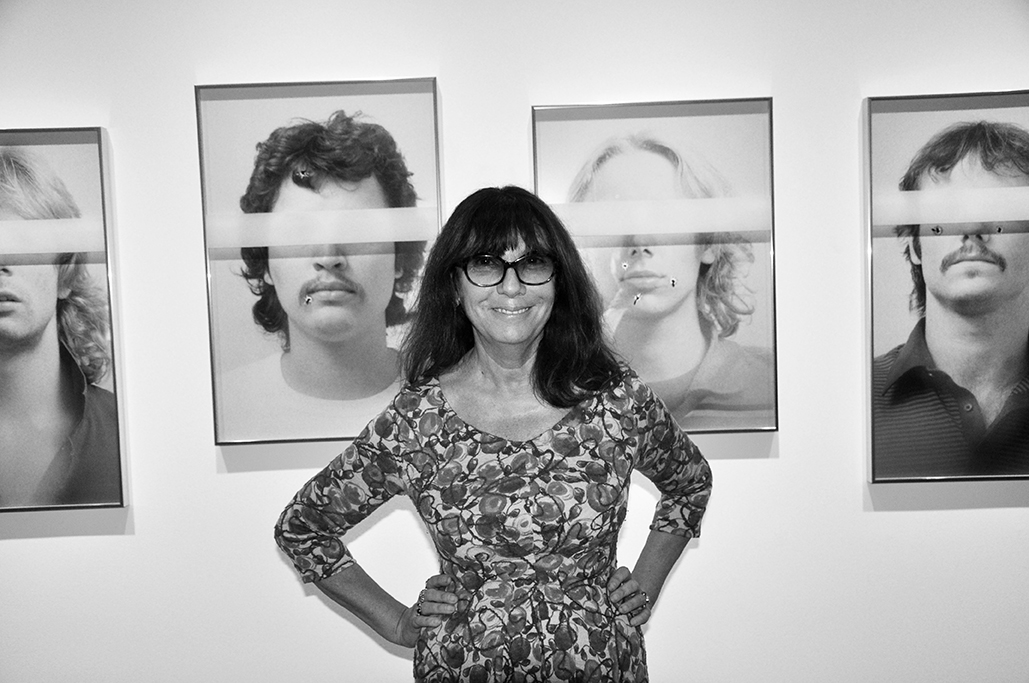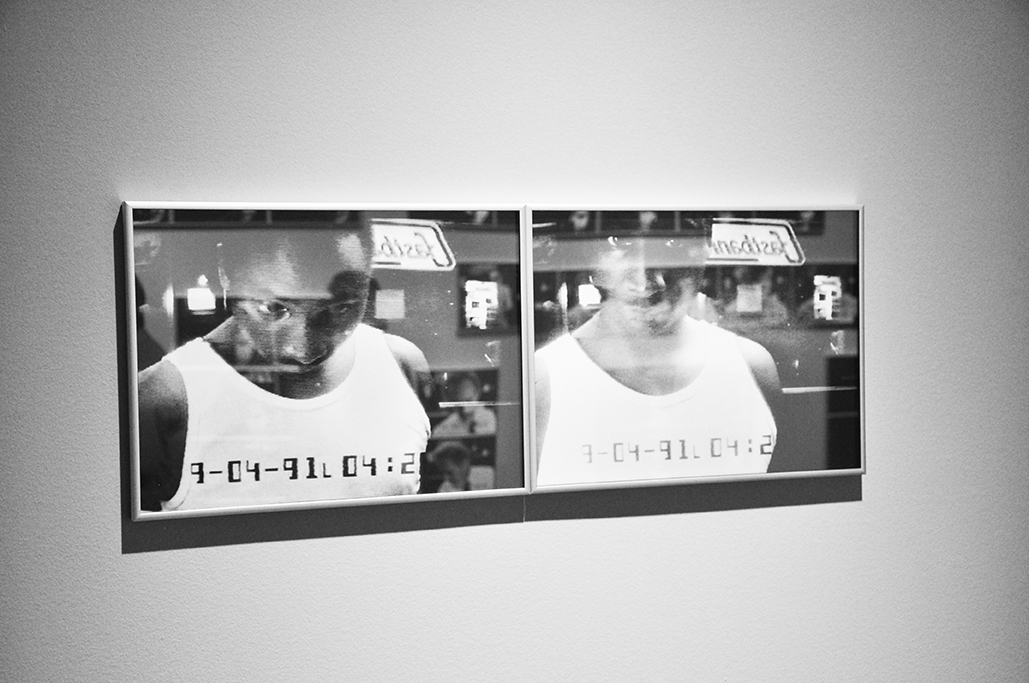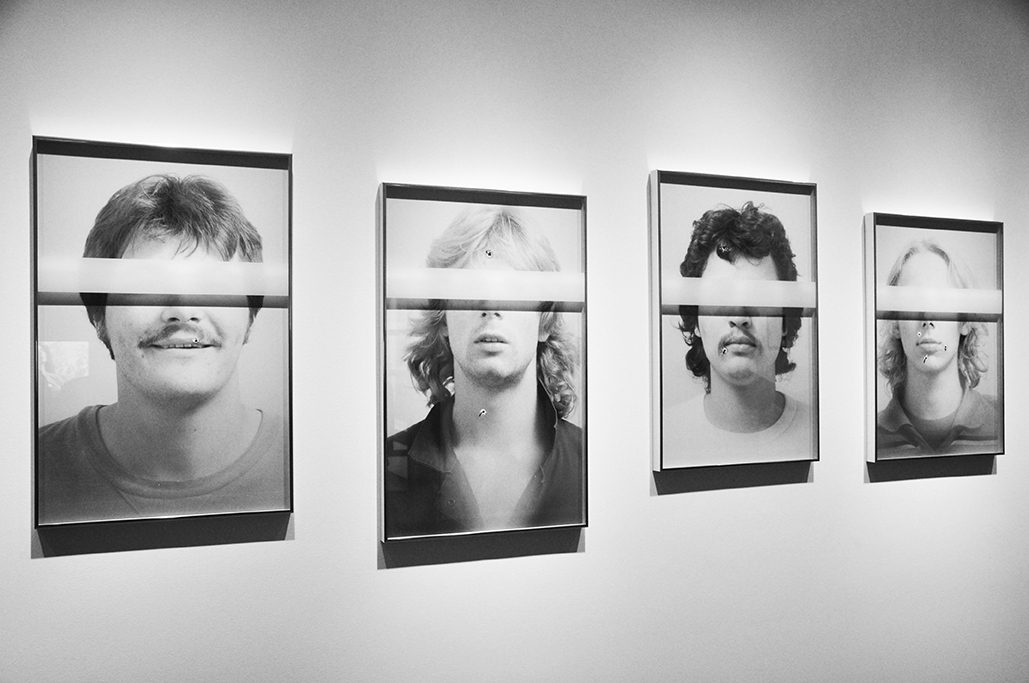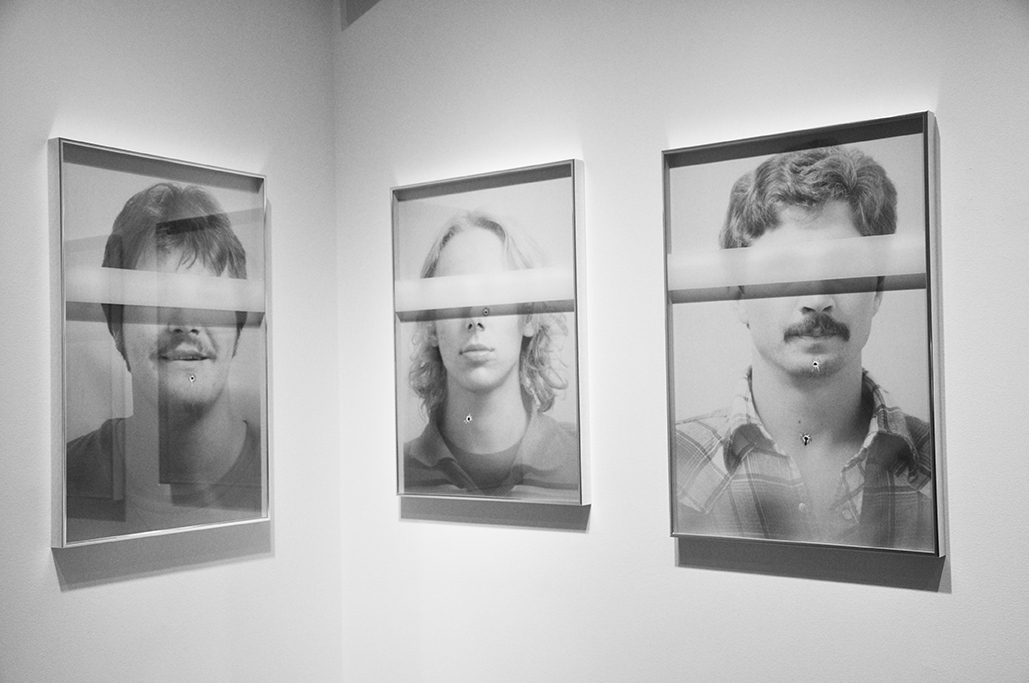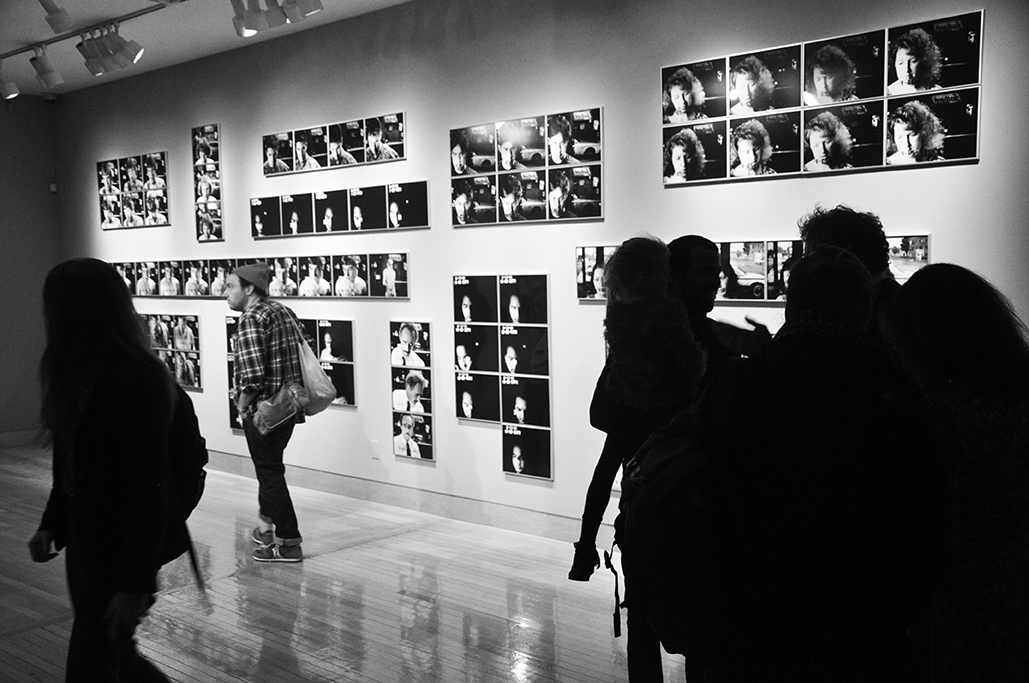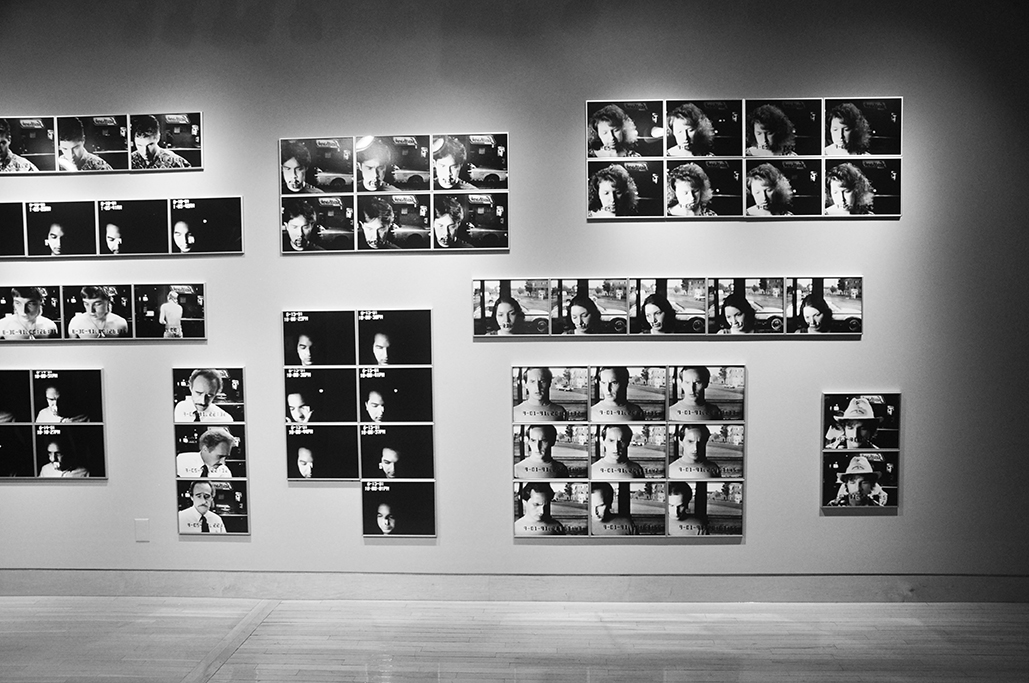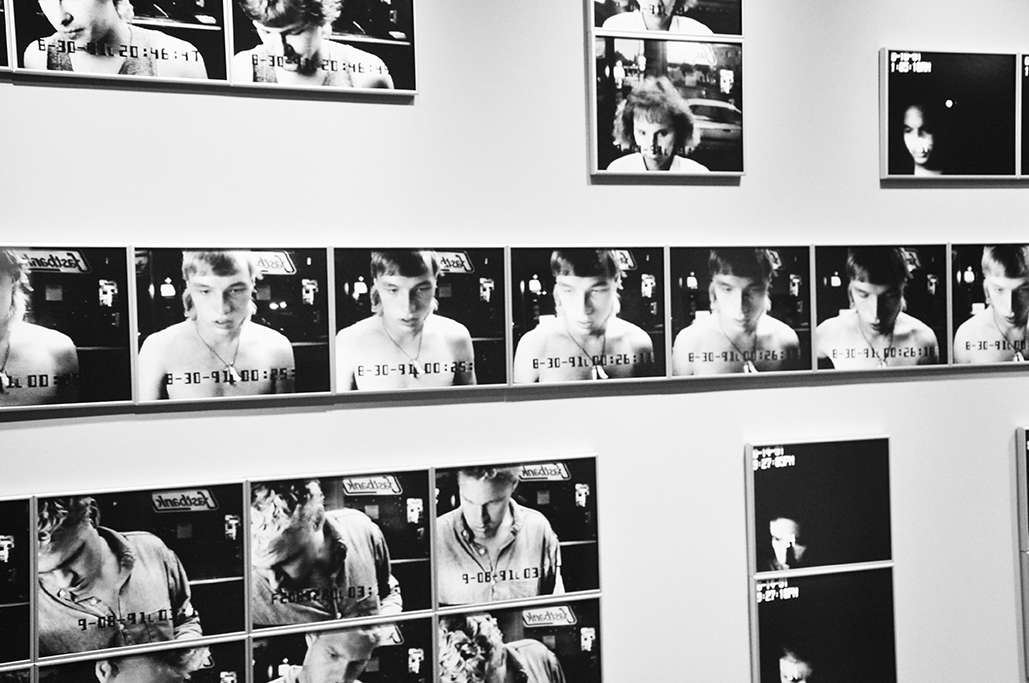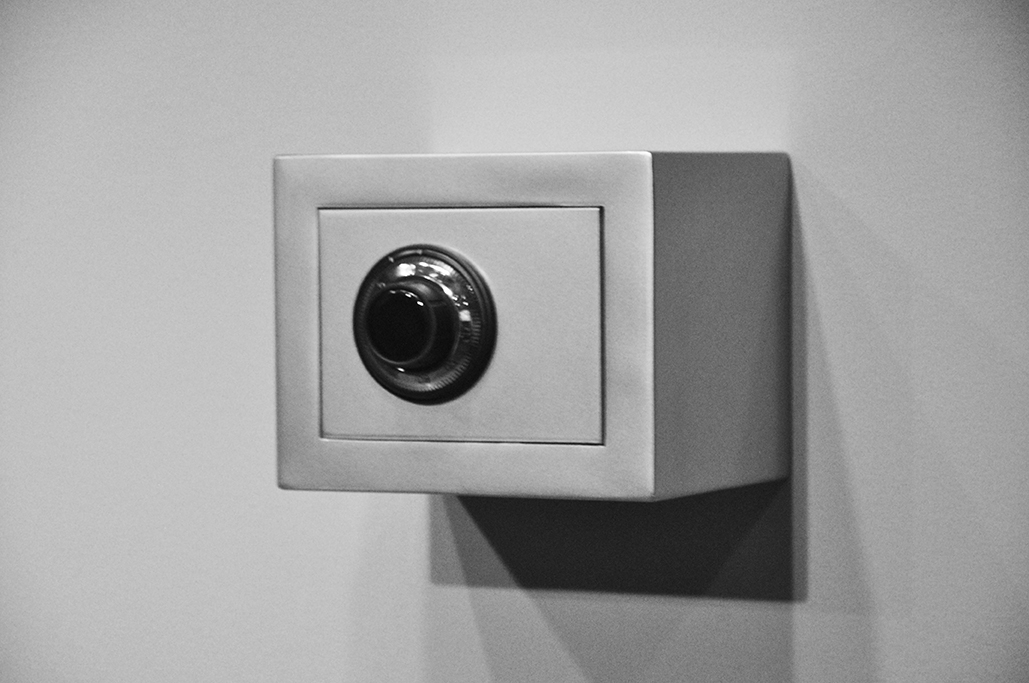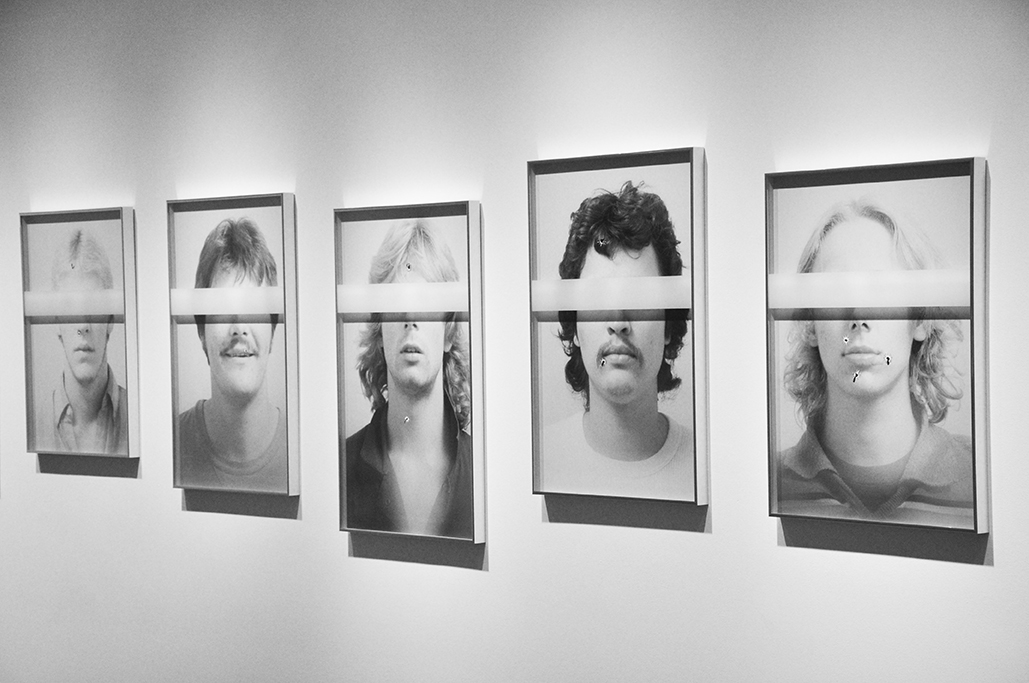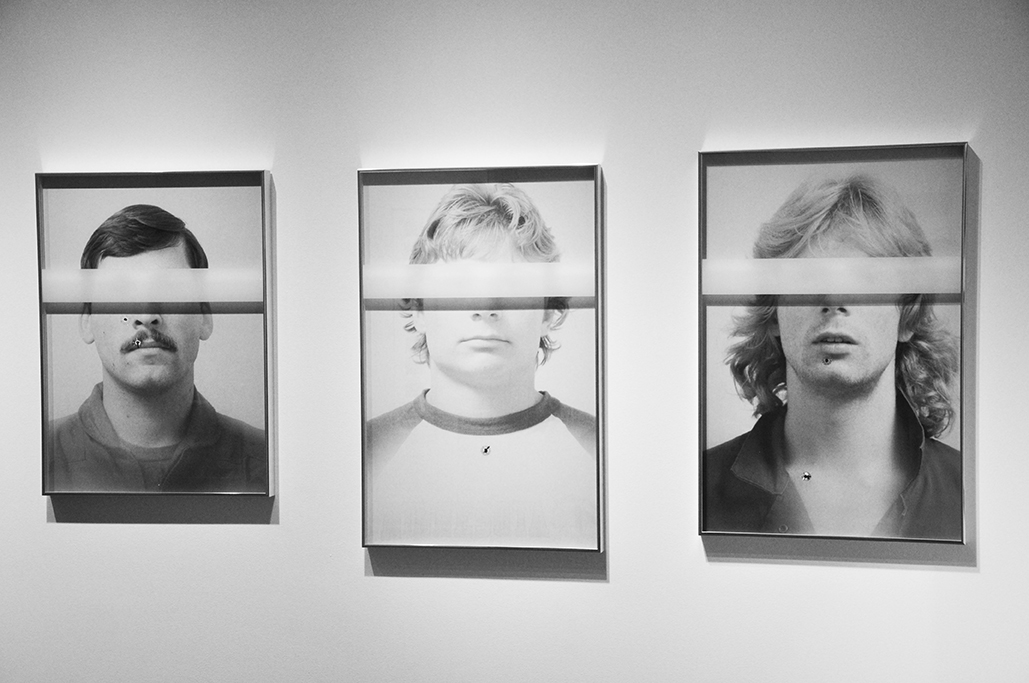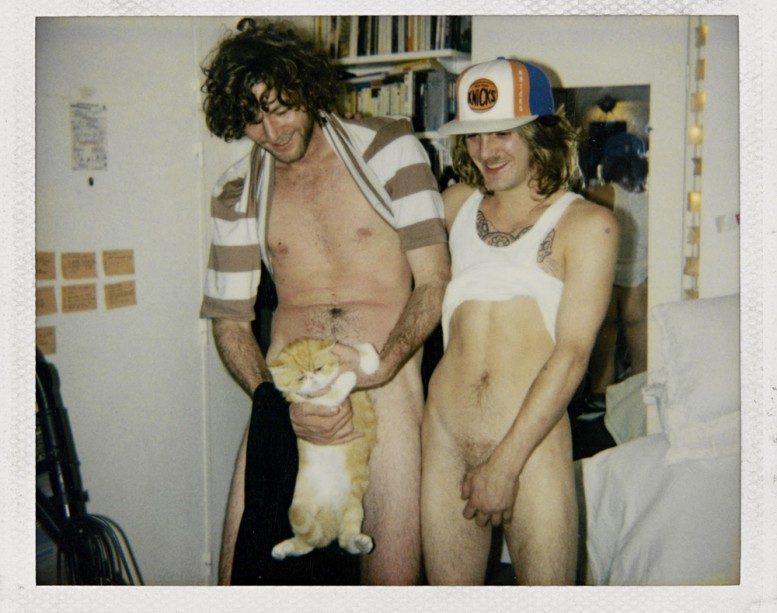"Find a couple. Have each of them tell me a secret. Install two safes in their home. Lock each secret up in its own safe. Keep the codes to myself. The lovers will have to live with the other’s secret close at hand but out of reach." Fraenkel Gallery presents an exhibition of work by Sophie Calle. Calle uses photography, text, and video to pursue her sociological and autobiographical investigations. Her exhibition at Fraenkel Gallery focuses on four bodies of work in which the artist delves into the nature of love, violence, secrets, and death. Among the works on view will be Secrets—a pair of working safes for storing a couple’s secrets, accompanied by a plaque engraved with the above text and the artist’s contract stipulating how these mysteries will remain secured. Writing is often integral to Calle’s work, as in her 2014 triptych Suicide (also on view), in which photographs of dark ripples on the surface of black water are accompanied by text sandblasted on glass: “They say the police can distinguish between people who drown themselves for love and those who drown themselves for money…” Featured in this exhibition will be two series incorporating portraits from ‘ready-made’ sources and addressing themes of privacy and violence. Calle’s Cash Machine photographs are made from ATM video surveillance footage, and each work is exhibited as a sequence of two to eleven images. Collateral Damage, Targets is a series comprised of images of petty criminals’ mugshots, which were used for police target practice. The exhibition will be on view until December 24, 2015 at Fraenkel Gallery in San Francisco. photographs by Bradley Golden
PRIVACY Exhibition at Schirn Kunsthalle
Private—a word from the past, or so it would seem these days. A word of hardly any relevance in an era when everything—from one’s favorite recipe to one’s current relationship status—is posted on Facebook. Exhibitionism, self-disclosure, the delight in telling stories, showing off, and voyeurism are the social strategies in today’s world—a world that has long since undergone a structural transformation of the public sphere. In contemporary art, domestic scenes and personal secrets are mirrored in photographs, Polaroids, cell phone photos, objects, installations, and films. The familiar and intimate are put in the picture. Through a consideration of numerous contemporary approaches the Schirn investigates the dwindling private sphere and the “publicness of the intimate.” Aiming her camera through a rear courtyard window, Merry Alpern captures blurred scenes of hurried sexual encounters; in his romantic video piece Akram Zaatari explores an online chat between two men; and Fiona Tan combines private snapshots from different countries to create large tableaux. The exhibition undertakes memorable excursions to the fragile borders between the self and the other. Other artists include Dash Snow, Mark Morrisroe, Ai Weiwei and Marilyn Minter. Privacy will be on view from November 1, 2012, to February 3, 2013 at the Schirn Kunsthalle, Romberg, 60311 Frankfurt
Sophie Calle's Address Book Published For the First Time
Never before published in its entirety in English, The Address Book is a key and controversial work in Sophie Calle’s oeuvre. Having found a lost address book on the street in Paris, Calle copied the pages before returning it anonymously to its owner. She then embarked on a search to come to know this stranger by contacting listed individuals—in essence, following him through the map of his acquaintances. Her written accounts of these encounters with friends, family and colleagues—juxtaposed with Calle’s photographs—originally appeared as serial in the newspaper Libération over the course of one month in 1983. As the entries accumulate, so do the vivid impressions of the address book’s owner, Pierre D., while also suggesting ever more complicated stories as information is gifted, parsed, and withheld by the people she encounters.hen Pierre D. learned about the work and its appearance in the newspaper, he threatened to sue (and demanded that Libérationpublish nude photographs of Calle as a reciprocal invasion of privacy). Calle agreed not to republish the work until after his death. Part conceptual art, part character study, part confession, part essay, The Address Book is, above all, a prism through which desire and the elusory, persona and identity, the private and the public, knowledge and the unknown are refracted in luminous and provocative ways. The Address Book can be purchased here.

